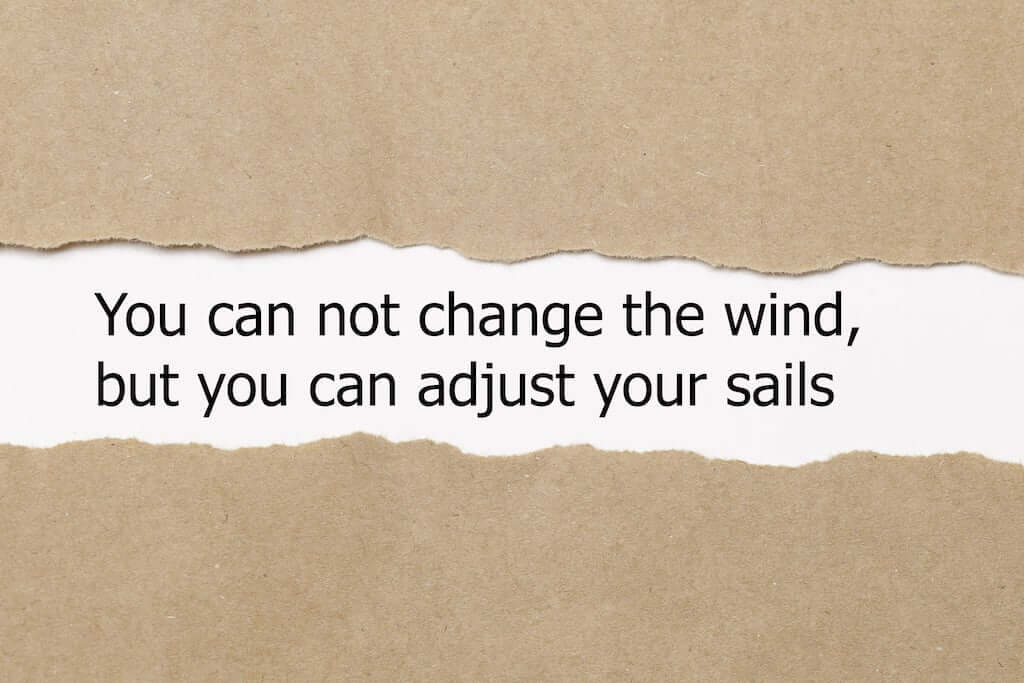Sustainable Caregiving Strategies
Strategy: Redefine Self-care
You may not have recognized your hobbies and interests as self-care prior to caregiving. Going to the gym, reading for pleasure, spending time with friends was just a part of life. As we begin to care for a family member and priorities shift, it is not uncommon to give up our interests and hobbies bit by bit until our entire life revolves around caregiving.

“Never give from the depths of your well, but from your overflow.”
Rumi
When possible, it is better to share the caregiving responsibilities by delegating or accepting help so that you can continue to participate in your passions. Self-care helps us stay stronger emotionally and physically so that we maintain our energy reserves. With this strength, the repeated stresses of caregiving have less of a negative impact.
As the experience intensifies, self-care opportunities may come in minutes rather than hours. We can make the most of those minutes by redefining self-care as often as necessary to fit within our day, within our routines. You might create a go-to list of restorative activities in order to have several options to choose from depending on your mood, needs, available time and space.
Two categories of self-care:
Within the caregiving experience, it is helpful to consider two primary categories of self-care. The first category, basic well-being self-care, is often neglected when the caregiving experience is new and intense. The second category includes the things that restore our energy. Within both categories, self-care will look different for each person and from day to day, possibly minute to minute.
You may get comfort and clarity from a walk in the morning and from sitting motionless in the afternoon. Cooking may be an escape most days and then, without warning, you may be desperate to escape the kitchen. You may find peace while attending a concert with friends alongside hundreds of other people and equally in a solitary place in nature. It may be a scent that takes you to a faraway place rather than an actual vacation.
Basic well-being:
Taking care of our basic well-being requirements can seem impossible when we are suddenly dropped into an intense caregiving experience or have arrived without preparation. We are simply trying to survive. Sustainability starts with meeting our basic well-being needs. Here are a few:
- Acceptance and Forgiveness – These skills are like muscles that need to be developed and require frequent training and practice to maintain strength and muscle memory. We discuss both in later lessons.
- Health – Schedule the wellness visit, the dentist appointment, other appointments that may have been neglected because you have had to place your health priorities last.
- Talk it out – Locate the option that works for you. Look into online support groups, community support groups, a minister or rabbi, a therapist, or a counselor. We discuss the importance of venting and the options in a later lesson.
- Routine – Commit to a morning and evening ritual to ensure that you are not skipping important steps in your own self-maintenance.
- For optimal energy
- Choose healthy foods; consider an app to track food and nutrients
- Drink lots of water
- Get as much sleep as possible at night
Move from survive to thrive:

Beyond the basics, we can get more creative and move from survive to thrive. It may take some inner exploration to identify what sustains you, what rejuvenates and revives your spirit.
Here are a few ideas to spark your imagination and inspire you to achieve moments (or more) of serenity or adventure. (These suggestions don’t take the pandemic into consideration. Please be safe.)
- Music – Create a “Reset my Mood” playlist or try the Calm app which has a vast selection of music for sleeping, relaxing, and more.
- Meditation – The Calm app can help you step away from the intensity. It also has sleep stories that work magic. For ninja-level naps, choose a selection from the naps category.
- Breathe – There’s an app for that too. There are also breathing exercises that bring about immediate relaxation in line at the grocery store or after awakening in the middle of the night. A simple one: inhale slowly through the nose, hold your breath for 5 seconds, and release the breath through the mouth. Repeat 5 times.
- Move – Run, walk, bike, dance, skate your way to contentment.
- Scents – Find your peace in lotions and essential oils.
- Tea – Find your favorite flavor. Check out Pukka’s Revitalise (with cinnamon, cardamom, and ginger) or Love (with chamomile, rose, and lavender): https://www.pukkaherbs.com.
- TV – Watch a favorite show while cooking or doing chores.
- Writing – It may be a diary, poetry, or gratitude journal. If you enjoy writing, find a beautiful blank book to hold your unique thoughts.
- Nature – If nature is your happy place, make spending time outside a priority. Or, put up a bird feeder and watch the bird channel from the window.
- Pet therapy – Cuddle with your furry friend or any available.
- Treat yourself – Get a coffee or ice cream while running errands.
- Read – Download that book that will offer an escape or allow you to learn about something new. Books offer an amazing opportunity to help us stay curious, get outside of ourselves or dig deeper, go on an adventure or take a class without leaving home.
- Friends – Schedule a lunch or coffee. Focus on reconnecting and catching up. Friends don’t always “get it” when it comes to caregiving stress, so expectations of empathy can be met with disappointment.
- Laugh – Appreciate the humor in those things that you know you will laugh about later. Watch Seinfeld reruns, whatever makes you smile out loud.
- Oasis – Create a comfy corner within your care recipient’s home so that you have a place to restore and regroup. Imagine LED candles, a special scent, mood music, tea, and pillows in your favorite colors.
Seamless Practice

Reflect:
- Which of these activities speak to you? What is missing?
- What do you consider guilty pleasures? What if you removed the guilt?
- What are your passions? How can you work your restorative self-care interests into your daily activities?
Journal:
- What do you miss? As caregivers, we experience many losses. You might miss travel, time with friends, leisurely weekends.
- How can you create experiences within your day that help you feel fulfilled and connected to the hobbies that you have put on hold?


Apply:
- Choose one or two activities and layer in more as you re-define and re-claim self-care.
- Work your favorites into a routine and set boundaries to protect the time.
